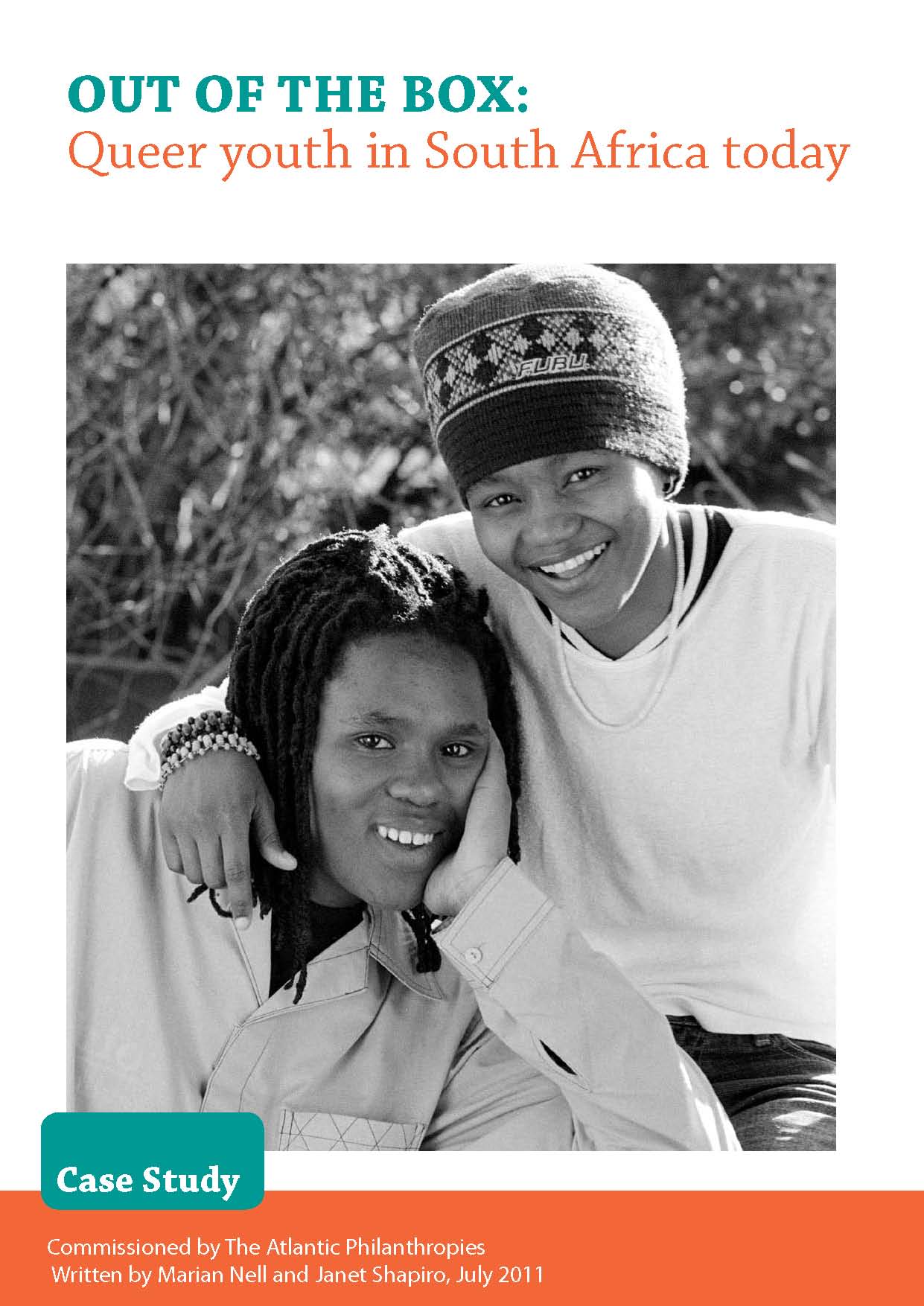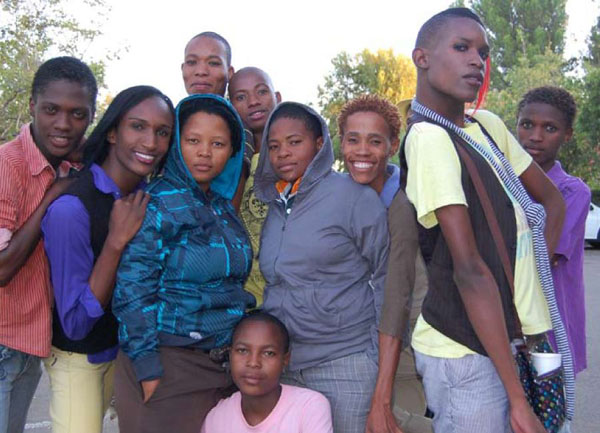Out of the Box: Queer Youth in South Africa Today
Resource type: News
African Activist | [ View Original Source (opens in new window) ]
 Atlantic Philanthropies just completed a study of queer youth in South Africa today. Seventeen years after the Constitution outlawed discrimination based on sexual orientation, the study explores if democracy has brought greater tolerance and celebration of diversity for today’s young LGBTIs.
Atlantic Philanthropies just completed a study of queer youth in South Africa today. Seventeen years after the Constitution outlawed discrimination based on sexual orientation, the study explores if democracy has brought greater tolerance and celebration of diversity for today’s young LGBTIs.
Marian Nell and Janet Shapiro authored the study. Nell has an MBA from the University of the Witwatersrand and an honours degree in Psychology from the University of South Africa. She and Janet Shapiro, who has a BA degree in Ethics and English from the University of Cape Town and an honours in Sociology from Rhodes University, have worked together as organisational consultants for the past 28 years. Initially they worked with anti-apartheid organisations but, since 1994, they have done consultancy work in development around the world, with a specific emphasis on Southern Africa.
According to the Forward of “Out of the Box: Queer Youth in South Africa Today“, Nell and Shapiro encountered a contradictory reality.
In 1995, the country’s groundbreaking, progressive Constitution outlawed discrimination on the basis of sexual orientation, promising full citizenship to a post-apartheid generation of young LGBTIs after decades of political repression, in which homosexuality had been outlawed.
How has that promise played out against the reality of the poverty, inequality and hardship that the majority of youth (not just LGBTI youth) confront daily? Has democracy brought the greater tolerance and celebration of diversity enshrined in the Bill of Rights? Is life better today for young LGBTIs than in 1994?
Nell and Shapiro encountered a contradictory reality. Young LGBTIs are exposed to the same challenges as most South African youth – but these are made worse by continuing homophobia at home, at school, in churches and in society at large, despite the social changes of the recent past. Young LGBTIs continue to experience isolation and are prone to disproportionate rates of mental illness, suicide, and alcohol and drug abuse, when compared to heterosexual youth. Government youth development polices have largely failed to address homophobia.
However, a positive feature of the period since 1994 has been the growth of an organised LGBTI community and organisations that provide safe spaces, support and services to young LGBTIs. Youth LGBTI groups are springing up on university campuses, and in townships and rural towns around the country. A new landscape is emerging, in which the post-apartheid LGBTI generation can live more fulfilled lives.
With the support of these organisations, many young LGBTIs are able to come to terms with their sexuality and come out as queer at much earlier ages than their forbears. Young LGBTIs are more easily able to articulate their legitimate aspirations: to have unencumbered fun, to ‘have lived and loved’, to marry their partners and to have families. For many, the experience of having overcome the adversity of being gay in an overwhelmingly heterosexual environment has led them into activism, not only within the LGBTI community, but in broader human rights struggles.
This publication makes four key findings:
- LGBTI youth are not making themselves visible enough and the world they live in conspires, usually unintentionally, to make them invisible.
- LGBTI youth face challenges that are peculiar to their community and need specific attention – but they also confront the hardship experienced by all young South Africans and share their needs.
- LGBTI youth are finding support in the community and, where it does not exist, creating it for themselves.
- LGBTI youth have a sense of agency and see themselves as contributing to a future South Africa characterised by respect for diversity and human rights for all.

Working With Young Queers
The study ends with advice about working with and empowering young LGBTIs.
Emerging from this, we see a need for young LGBTIs to get involved in youth groups that are either LGBTI-specific or more general, involving fora of various kinds with a commitment to social justice. The more LGBTI youth are seen to be part of the solution, the less likely they are to be seen as part of the problem, and the more inclusive attitudes will be towards them. Inclusivity means the celebration of diversity. So, while in no way minimising the challenges faced by young LGBTIs, but taking their own activist approach as a starting point, we make the following suggestions.
The suggestions include:
- Setting up and running a youth group
- Building confidence – the school years: advice for educators and leaders
“Out of the Box: Queer Youth in South Africa Today” has been added to African Activist’s resources area under “Youth” and “Country Studies: South Africa.”